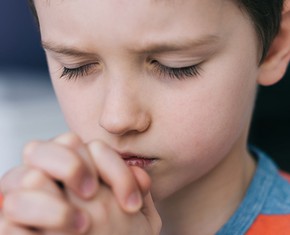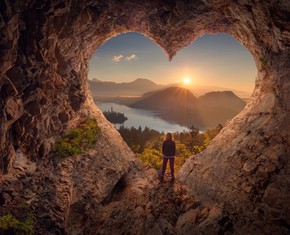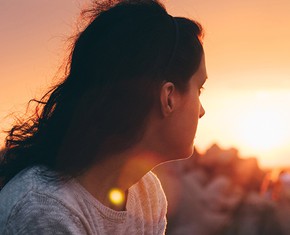The views expressed in our content reflect individual perspectives and do not represent the authoritative views of the Baha'i Faith.
I grew up in Arizona, so I grew up around drugs. On the smuggling routes from Mexico, the roads through southern and central Arizona have carried unknown tons of marijuana, cocaine, heroin and methamphetamine northward. Once, hiking in the desert, I found a huge bale of pot, wrapped in plastic and burlap, that looked like it had fallen from a plane flying overhead, or maybe had been dropped by a smuggler walking overland to a rendezvous point.
I left it there and kept hiking.
Another time, in graduate school, I had a roommate who turned out to be a pot dealer. When I discovered what he was doing, I asked him to stop dealing or move out. At the time in Arizona, possession of more than two ounces of marijuana in a household could turn into a twenty-year sentence for everyone in that household. My roommate moved the next day, but not before two policemen knocked at my door early that morning and asked for him by name. What a frightening moment—I could just see myself locked up, protesting my innocence behind bars for the next two decades. Luckily, the policemen had just stopped by to give him a parking ticket. Turns out he’d left his car sticking halfway out into the street when he’d returned home the night before. You probably know why.
Anyway, I resolved early in life never to ingest any mind-altering chemicals. Long before I’d ever heard of the Baha’i Faith—which asks its followers to abstain from drugs or alcohol unless a physician prescribes them—I had decided that I didn’t want to take any risks with my mind. I knew I would never be a movie star or a world-class athlete, so I figured my brain constituted my sole reliable asset in this world. Then I had a few experiences that confirmed my early decision to stay away from any and all drugs.
First, ironically, I began to drink alcohol at about 14. Yes—alcohol is a drug. Did I know that? No. My father’s alcohol consumption was just a regular part of his day, and he had begun giving me sips of his beer when I was five years old, so I thought that normal people drank all the time. During that period of my life I worked in a restaurant with a bunch of college kids who bought and drank alcohol every night, so I just naturally joined in, oblivious of the damage I did to my young mind and body. In fact, I would soon learn, alcohol is the world’s most abused and probably most dangerous drug.
I found that out when I drove home drunk one night. Luckily I didn’t hurt anyone or smash up any cars, but the next day I realized that I couldn’t remember anything about the night before. A friend told me I’d had an alcoholic blackout, a permanent memory loss caused by an overdose. “What did you expect?” my friend asked me, “you know every drink kills about 500 brain cells, right?” Suddenly, I realized that the slow mental decline I’d seen in alcoholic adults could happen to me, too. The next night I went to my first Alcoholics Anonymous meeting. I haven’t had a drink since that meeting, 47 years ago.
When I first encountered the Baha’is, I asked “Do Baha’is drink?” My Baha’i friend handed me this quote from Baha’u’llah, the prophet and founder of the Faith:
Beware lest ye exchange the Wine of God for your own wine, for it will stupefy your minds, and turn your faces away from the Countenance of God, the All-Glorious, the Peerless, the Inaccessible. Approach it not, for it hath been forbidden unto you by the behest of God, the Exalted, the Almighty. – from a tablet of Baha’u’llah cited in The Most Holy Book, p. 226.
“Not even wine?” I asked. My friend said “Nothing that can turn your face away from God.”
Then, a year later at the young age of 18, just after I decided to become a Baha’i, I got a job in a large state mental hospital. They put me to work in a ward of male schizophrenics, which also included men with brain damage from alcoholism and drug overdoses. One day, we admitted someone I knew, a college friend of mine, who had figured out that one hit of acid (the hallucinogenic drug LSD) felt so great that he should take ten. My friend—I’ll call him Sebastian—never recovered. He had permanent brain damage, and lived in a facility for severely-brain-injured residents for the rest of his life.
So I saw the “needle and the damage done,” as Neil Young sings, and I decided that I wouldn’t allow that kind of damage to happen to me. Drug- and alcohol-free, often pressed into service as the designated driver, I still witnessed many drug-related tragedies among friends—at least two drunk driving deaths, a suicide, arrests and jail terms, severely derailed lives, more damaging overdoses, and countless broken hearts. One particularly bad overdose almost killed someone close to me—it turned out a dealer had sold him strychnine, a deadly poison, claiming it was something else. He was never the same again.
Then, as I became more and more involved with the Baha’is, I realized that my decision to get clean and sober had begun to pay some inner spiritual dividends, too.
I slowly learned that a clear head allowed me to focus on my spirit, understand my own soul, and better comprehend the true reality of things. Many times I wanted a short break from my rational, logical self, but instead of finding it by temporarily getting high or drinking, I gradually learned to search for it as a more permanent state in prayer, meditation and contemplation. A natural introvert, I found that abstaining from drinking made me make the effort to learn to actually become sociable and conversant, rather than artificially stimulating it with the “social lubricant” of alcohol. I soon realized how much time, energy and money my friends and acquaintances spent on the pursuit of their various drugs of choice; and how much I didn’t. I researched the health effects of drug use, and learned how abstainers live longer and healthier lives. Most importantly, I came to the conclusion that a drug-free life allowed me to live a much more spiritually-enriching existence, opening my unfettered and unclouded perceptions to the natural beauty of the world and the people around me.
In this series of essays, we’ll take a look at drug and alcohol use from both a physical and a spiritual perspective. We’ll explore the proven effects—positive and negative—of cannabis, the opiates and other drugs. We’ll examine the pros and cons of marijuana from a scientific point of view. We’ll hear from some experts, consult the Baha’i writings on the subject, and delve into a few personal stories, too.
Please follow along as we take a hard look at a hard subject, and please come to your own conclusions.
















Comments
Sign in or create an account
Continue with Googleor